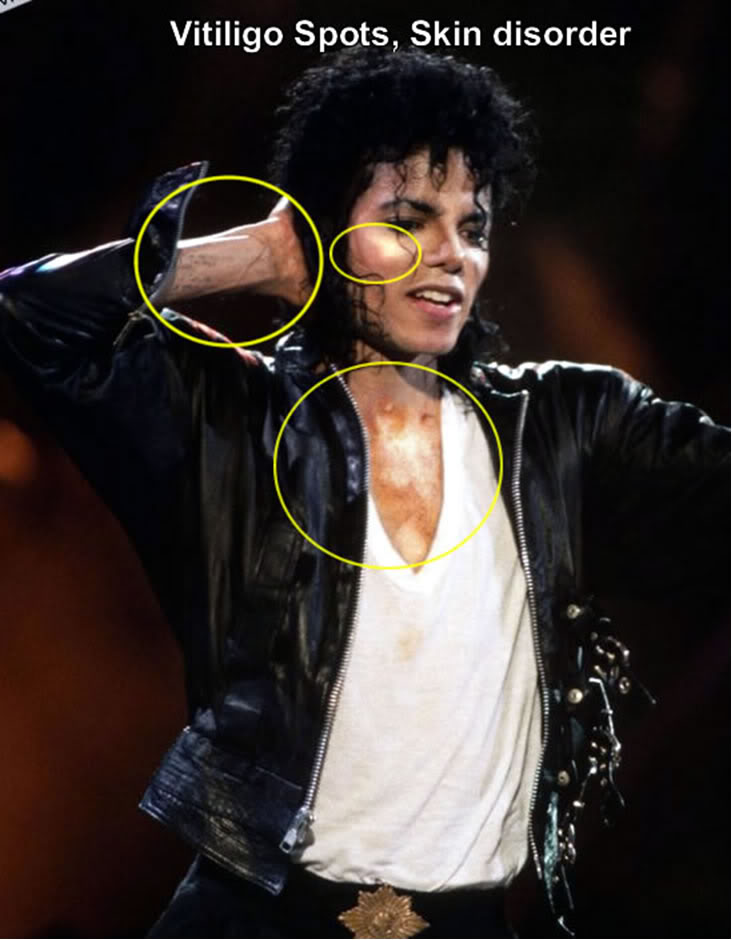The life of Michael Jackson, the King of Pop, has always been surrounded by intrigue and speculation. His unique appearance, combined with his extraordinary talent, made him a subject of fascination throughout his career. Among the various rumors and discussions that have emerged over the years, one of the most persistent questions is whether Michael Jackson suffered from vitiligo. This skin condition, characterized by the loss of pigmentation, has been a focal point of conversation, particularly in relation to Jackson's changing skin tone over the years.
In this article, we will explore the question, "Did Michael Jackson have vitiligo?" by delving into his life, the medical explanations behind vitiligo, and the impact it had on his identity. We aim to clarify misconceptions and provide a comprehensive understanding of this condition, as it relates to the iconic pop star. Join us as we unravel the truth behind Michael Jackson's skin condition and its significance in his life and career.
As we navigate through this topic, we will also take a closer look at the cultural implications of vitiligo, how it affected Jackson's public image, and the broader conversations about beauty standards and self-acceptance. Understanding the reality of vitiligo in Michael Jackson's life can lead to a deeper appreciation for his artistry and the challenges he faced as a public figure.
What is Vitiligo?
Vitiligo is a long-term skin condition that causes patches of skin to lose their pigment. This occurs when melanocytes, the cells responsible for producing melanin, are destroyed. The exact cause of vitiligo is still not fully understood, but it is believed to be an autoimmune response where the body's immune system attacks its own cells. Here are some key points about vitiligo:
- It can affect individuals of any skin type or ethnicity.
- It is not contagious and does not pose any health risk.
- The condition can develop at any age, although it often appears before the age of 20.
- Treatment options include topical medications, light therapy, and skin grafts, but results vary.
Michael Jackson's Biography
| Personal Details | Information |
|---|---|
| Name | Michael Joseph Jackson |
| Date of Birth | August 29, 1958 |
| Place of Birth | Gary, Indiana, USA |
| Profession | Singer, songwriter, dancer |
| Date of Death | June 25, 2009 |
Did Michael Jackson Ever Confirm His Diagnosis?
Throughout his life, Michael Jackson faced numerous rumors regarding his appearance, including speculation about his skin color. In interviews, he publicly stated that he had vitiligo, and his dermatologist, Dr. Arnold Klein, confirmed this diagnosis. Klein explained that Jackson had a severe case of vitiligo, which contributed to his changing skin tone.
How Did Vitiligo Affect Michael Jackson's Career?
Michael Jackson's vitiligo had a significant impact on his career, both positively and negatively. On one hand, it fueled public curiosity and speculation about his appearance. On the other hand, Jackson's ability to perform and connect with audiences remained intact, proving that his talent transcended physical appearance. Here are some ways vitiligo influenced his career:
- Increased media scrutiny and public interest in his personal life.
- He became a spokesperson for individuals with skin conditions, promoting self-acceptance.
- His changing appearance sparked conversations about race, beauty standards, and identity.
Did Michael Jackson Use Makeup to Conceal His Condition?
Yes, Michael Jackson did use makeup to even out his skin tone due to vitiligo. His makeup artist, Way Bandy, played a significant role in creating looks that complemented Jackson's changing complexion. This use of makeup led to further speculation about his appearance, but it was a necessary measure for him to maintain his public image while dealing with the challenges of vitiligo.
How Did the Public React to Jackson's Condition?
The public reaction to Michael Jackson's vitiligo was mixed. While many fans supported him and empathized with his struggles, others perpetuated negative stereotypes and misconceptions. Some believed that he was trying to "change" his race or that he was ashamed of his heritage. This misunderstanding led to significant discussions about race and identity in the media.
What Can We Learn from Michael Jackson's Experience with Vitiligo?
Michael Jackson's journey with vitiligo serves as a poignant reminder of the complexities of self-identity and public perception. His experience highlights the importance of understanding skin conditions and dispelling myths surrounding them. Here are a few lessons we can learn:
- Empathy and understanding are crucial in addressing issues related to skin conditions.
- Conversations about beauty standards should be inclusive and respectful of all individuals.
- It is essential to support and empower those who face challenges related to their appearance.
In Conclusion: Did Michael Jackson Have Vitiligo?
In conclusion, the question "Did Michael Jackson have vitiligo?" is answered with a definitive yes. He openly acknowledged his condition, and it played a significant role in shaping his identity and public image. Understanding Michael Jackson's experience with vitiligo encourages a broader conversation about self-acceptance, beauty standards, and the challenges faced by individuals with skin conditions. As we remember the King of Pop, let us celebrate his artistry while also recognizing the importance of compassion and understanding in our society.
Unveiling The Mystery: When Did Bruno Mars Get Married?
Unveiling The Life And Legacy Of Diahnne Abbott
Unveiling The Allure: Morgan Vera Naked


